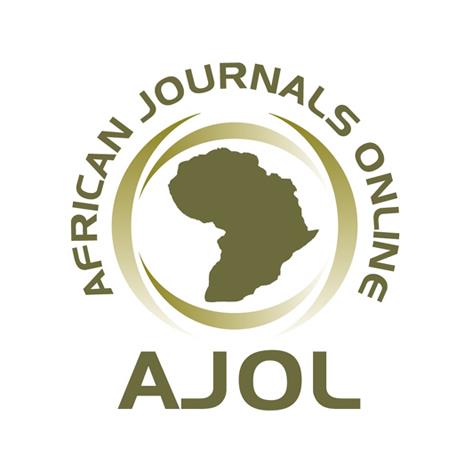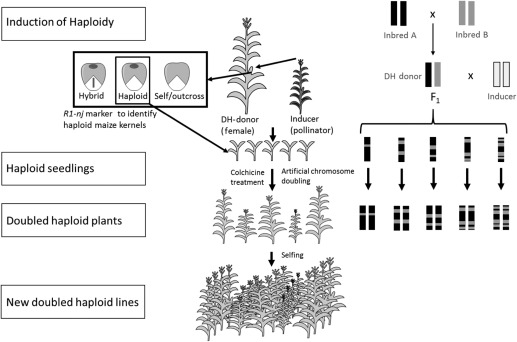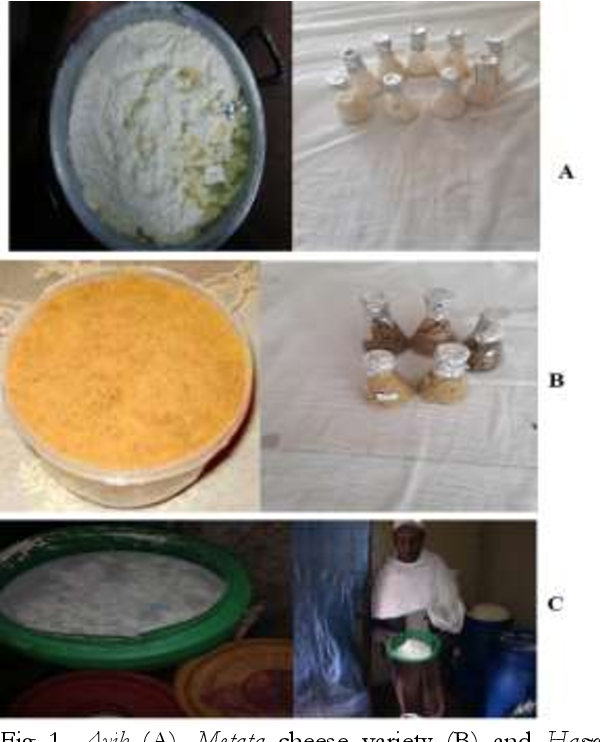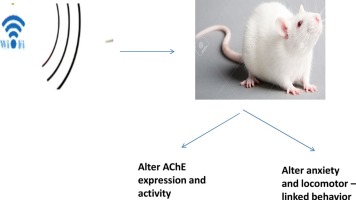Validation of the ‘Revised Dyadic Adjustment Scale (RDAS)’ for Measuring Marital Relationship among Oromo Language Speaking Ethiopian Families at Burayu Town, Central Ethiopia
Downloads
Background: While research in marital adjustment continues, developing family measures that fit into different socio-cultural contexts appears to be minimally pursued. This calls for customization of measures used elsewhere in the world and check its appropriateness.
Objective: Widely used marital adjustment measure (Revised Dyadic Marital Adjustment Scale, RDAS) with three subscales (Consensus, Cohesion, and Satisfaction) was validated against Oromo language speaking communities living in Burayu town.
Materials and Methods: The data used in this study were generated from 201 randomly selected participants living in marital relationships for over a year. The validation measure, RDAS, was used to collect data along with the two anchor scales; Satisfaction with family life scale (SFLS) and conflict subscale of brief family relationship scale (BFRS). Beforehand, bilingual experts were translated the English version of RDAS and SFLS to the Oromo language and backward to English to ensure content similarity and harmony in meanings between the two versions. Descriptive statistics, factor analysis, and Pearson product moment correlation coefficients were used for data analysis.
Results: An acceptable overall reliability index of RDAS (α = 0.799 ) was obtained. Factor analysis verified the presence of three components of RDAS. However, one item from RDAS Cohesion subscale was reduced because of low factor loading. RDAS convergent validity and discriminant validity were ensured with observed significant correlation indices between overall RDAS and SFLS score, and very low negative correlation between RDAS and conflict subscale of BFRS, respectively. The findings confirm the model fitness to the sample data with all satisfactory goodness of fit indices.
Conclusion: it is concluded that acceptable overall reliability coefficient of Cronbach’s alpha 0.799 and ensured construct validity of the scale justifies its appropriateness to use for the intended purpose. The results imply that the three-dimensional RDAS has had reliable and valid psychometric properties based on the data obtained from Oromo language speaking Ethiopian married couples.
Belay Tefera. 2011. Parenting in Africa, Guidelines,
documentation, and reporting of good practices.
Unpublished Book, Addis Ababa University,
Ethiopia. Pp. 57–81.
Borsa, J.C., Damásio, B.F. and Bandeira, D.R. 2012.
Cross-cultural adaptation and validation of
psychological instruments: Some
considerations. Paidéia (Ribeirão Preto), 22(55):
–432.
Burayu City Finance and Economic Office. 2015. Burayu
City Administration Socio-Political Economy
profile. Pp. 2–29.
Busby, D.M., Christensen, C., Crane, D.R. and Larson,
J.H. 1995. A revision of the Dyadic Adjustment
Scale for use with distressed and non-distressed
couples: Construct hierarchy and
multidimensional scales. Journal of Marital and
family Therapy, 21(3): 289–308.
Costello, A.B. and Osborne, J. 2005. Best practices in
exploratory factor analysis: Four
recommendations for getting the most from
your analysis. Practical Assessment, Research, and
Evaluation, 10(7): 1–9.
Crane, D.R., Busby, D.M. and Larson, J.H. 1991. A factor
analysis of the Dyadic Adjustment Scale with
distressed and non-distressed couples. American
Journal of Family Therapy, 19(1): 60–66.
Cronbach, L.J. and Meehl, P.E. 1955. Construct validity
in psychological tests. Psychological Bulletin, 52(4):
–302.
CSA (Central Statistical Agency). 2013. Population
Projections for Ethiopia 2007–2037. Addis
Ababa, Ethiopia. Pp. 41–52.
Dziuban, C.D. and Shirkey, E.C.1974. When is a
correlation matrix appropriate for factor
analysis? Some decision rules. Psychological
Bulletin, 81(6): 358–361.
Field, A. 2013. Discovering statistics using IBM SPSS statistics.
Sage, UK. Pp. 109–131.
Fok, C.C.T., Allen, J., Henry, D. and Team, P.A. 2014.
The Brief Family Relationship Scale: A brief
measure of the relationship dimension in family
functioning. Assessment, 21(1): 67–72.
Graham, J.M., Diebels, K.J. and Barnow, Z.B. 2011. The
reliability of relationship satisfaction: A
reliability generalization meta-analysis. Journal of
Family Psychology, 25(1): 39–48.
Hair, J.F., Anderson, R.E., Tatham, R.L. and Black, W.C.
Factor analysis. Multivariate data
analysis. NJ Prentice-Hall. Pp. 98–99.
Hamann, P.M., Schiemann, F., Bellora, L. and Guenther,
T.W. 2013. Exploring the dimensions of
organizational performance: A construct validity
study. Organizational Research Methods, 16(1): 67–
Hambleton, R.K., Merenda, P.F. and Spielberger,
C.D.2004. Issues, designs, and technical
guidelines for adapting tests into multiple
languages and cultures. Pp. 15–50. In: Adapting
educational and psychological tests for cross-cultural
assessment. Psychology Press, New Jersey.
Harway, M., editor. 2004. Handbook of couples therapy. John
Wiley & Sons. Pp. 7–80.
Hendrick, S.S., Dicke, A. and Hendrick, C. 1998. The
relationship assessment scale. Journal of Social and
Personal Relationships, 15(1): 137–142.
Hollist, C.S., Falceto, O.G., Ferreira, L.M., Miller, R.B.,
Springer, P.R., Fernandes, C.L. and Nunes, N.A.
Portuguese translation and validation of
the Revised Dyadic Adjustment Scale. Journal of
Marital and Family Therapy, 38(1): 348–358.
Hooper, D., Coughlan, J. and Mullen, M.R .2008.
Equation modelling: Guidelines for determining
model fit. Electronic Journal of Business Research
Methods, 6(1): 53–60.
Howard, M.C. 2016. A review of exploratory factor
analysis decisions and overview of current
practices: What we are doing and how can we
improve? International Journal of Human-Computer
Interaction, 32(1): 51–62.
Hulin, C., Netemeyer, R. and Cudeck, R. 2001. Can a
reliability coefficient be too high? Journal of
Consumer Psychology, 10(1): 55–58.
Jorskog, K.G. and Sorbom, D. 1989. LISREL 7: A Guide
to the Program and Applications, Chicago: SPSS.
Inc., Chicago, IL. Pp. 71–83.
Kaiser, H.F. 1974. An index of factorial
simplicity. Psychometrika, 39(1): 31–36.
Karney, B.R. and Bradbury, T.N. 1997. Neuroticism,
marital interaction, and the trajectory of marital
satisfaction. Journal of Personality and Social
Psychology, 72(5): 1075–1092.
Kazak, A.E., Jarmas, A. and Snitzer, L. 1988. The
assessment of marital satisfaction: An evaluation
of the Dyadic Adjustment Scale. Journal of Family
Psychology, 2(1): 82–91.
Levin, K.A. 2006. Study design III: Cross-sectional
studies. Evidence-based Dentistry, 7(1): 24–25.
Locke, H.J. and Wallace, K.M. 1987. Marital adjustment
test. Handbook of measurements for marriage and
family therapy. Rutledge. Pp. 46–50.
Maroufizadeh, S., Omani-Samani, R., Hosseini, M.,
Almasi-Hashiani, A., Sepidarkish, M. and Amini,
P. 2020. The Persian version of the revised
dyadic adjustment scale (RDAS): A validation
study in infertile patients. BMC Psychology, 8(1):
–8.
Naeem, B., Aqeel, M., Maqsood, A., Yousaf, I. and Ehsan,
S. 2021. Psychometric properties of the revised
Urdu version dyadic adjustment scale for
evaluating marital relationship quality between
madrassa and Non-Madrassa married
women. International Journal of Human Rights in
Healthcare, 14(4): 1–20.
Nichols, C.W., Schumm, W.R., Schectman, K.L. and
Grigsby, C.C. 1983. Characteristics of responses
to the Kansas Marital Satisfaction Scale by a
sample of 84 married mothers. Psychological
Reports, 53(2): 567–572.
Nunnally, J.C. 1978. An Overview of Psychological
Measurement. Pp. 97–146. In: Wolman, B.B.
(ed.). Clinical Diagnosis of Mental Disorders.
Springer, Boston, MA.
https://doi.org/10.1007/978-1-4684-2490-
_4.
Pett, M.A., Lackey, N.R. and Sullivan, J.J. 2003. Making
sense of factor analysis: The use of factor analysis for
instrument development in health care research. Sage,
UK. Pp. 7–35.
Reynolds, J., Houlston, C. and Coleman, L. 2014.
Understanding relationship quality. Benjamin
Street, London. Accessed in December 2021.
Sanezhad, O., Ahmadi, S.A., Bahrami, F., BaghbanCichani, I., Farajzadegan, Z. and Etemadi, O.
Factor structure and reliability of the
Revised Dyadic Adjustment Scale (RDAS) in
Iranian population. Iranian Journal of Psychiatry
and Behavioral Sciences, 6(2):55–61.
Setia, M.S. 2016. Methodology series module 3: Crosssectional studies. Indian journal of
dermatology, 61(3): 261.
Sharpley, C.F. and Cross, D.G. 1982. A psychometric
evaluation of the Spanier Dyadic Adjustment
Scale. Journal of Marriage and the Family, 44(3):
–741.
Sireci, S.G., Yang, Y., Harter, J. and Ehrlich, E.J. 2006.
Evaluating guidelines for test adaptations: A
methodological analysis of translation
quality. Journal of Cross-Cultural Psychology, 37(5):
–567.
Spanier, G.B. 1976. Measuring dyadic adjustment: New
scales for assessing the quality of marriage and
similar dyads. Journal of Marriage and the Family,
(1): 15–28.
Stevens, J.P. 2002. Applied multivariate statistics for the social
sciences. Lawrence Erlbaum Associates, Mahwah,
NJ. Pp. 245–284.
Turliuc, M.N. and Muraru, A.A. 2013. Psychometric
properties of the revised dyadic adjustment scale
on a sample of married adults. Journal of
Psychological and Educational Research, 21(1): 49–
Turliuc, M.N. and Muraru, A.A. 2013. Psychometric
properties of the revised dyadic adjustment scale
on a sample of married adults. Journal of
Psychological and Educational Research, 21(1): 49–
Ursachi, G., Horodnic, I.A. and Zait, A. 2015. How
reliable are measurement scales? External
factors with indirect influence on reliability
estimators. Procedia Economics and Finance, 20:
–686.
Ward, P.J., Lundberg, N.R., Zabriskie, R.B. and Berrett,
K. 2009. Measuring marital satisfaction: A
comparison of the revised dyadic adjustment
scale and the satisfaction with married life
scale. Marriage and Family Review, 45(4): 412–429.
Ward, P.J., Lundberg, N.R., Zabriskie, R.B. and Berrett,
K. 2009. Measuring marital satisfaction: A
comparison of the revised dyadic adjustment
scale and the satisfaction with married life
scale. Marriage and Family Review, 45(4): 412–429.
Copyright (c) 2023 Geda Tolera, Belay Tefera

This work is licensed under a Creative Commons Attribution-NoDerivatives 4.0 International License.
- I am authorized by my co-authors to enter into these arrangements.
- I warrant, on behalf of myself and my co-authors, that:
- the article is original, has not been formally published in any other peer-reviewed journal, is not under consideration by any other journal and does not infringe any existing copyright or any other third party rights;
- I am/we are the sole author(s) of the article and have full authority to enter into this agreement and in granting rights to Springer are not in breach of any other obligation;
- the article contains nothing that is unlawful, libellous, or which would, if published, constitute a breach of contract or of confidence or of commitment given to secrecy;
- I/we have taken due care to ensure the integrity of the article. To my/our - and currently accepted scientific - knowledge all statements contained in it purporting to be facts are true and any formula or instruction contained in the article will not, if followed accurately, cause any injury, illness or damage to the user.
- I, and all co-authors, agree that the article, if editorially accepted for publication, shall be licensed under the Creative Commons Attribution License 4.0. If the law requires that the article be published in the public domain, I/we will notify Springer at the time of submission, and in such cases the article shall be released under the Creative Commons 1.0 Public Domain Dedication waiver. For the avoidance of doubt it is stated that sections 1 and 2 of this license agreement shall apply and prevail regardless of whether the article is published under Creative Commons Attribution License 4.0 or the Creative Commons 1.0 Public Domain Dedication waiver.
- I, and all co-authors, agree that, if the article is editorially accepted for publication in Haramaya Journals, data included in the article shall be made available under the Creative Commons 1.0 Public Domain Dedication waiver, unless otherwise stated. For the avoidance of doubt it is stated that sections 1, 2, and 3 of this license agreement shall apply and prevail.












